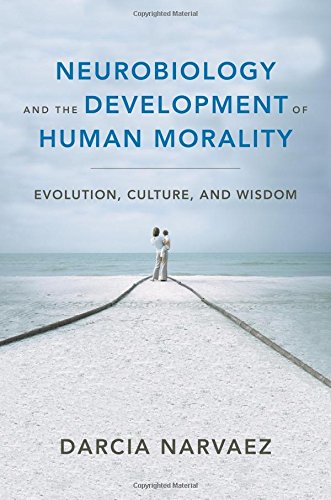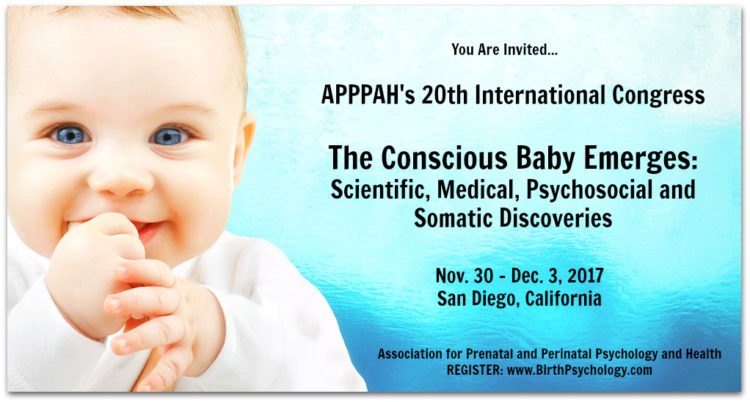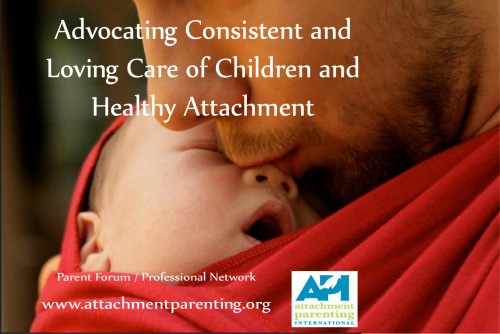Raising a Baby Well: Like Climbing Mount Everest – Planning For Baby Parenting
Mountain climbers prepare for the strains of challenging mountains. Wise parenting also takes preparation. I examine the parallels, from practice and focus to respect and support.
1. Practice.
No (informed) climber starts out selecting Mount Everest to climb first. Smart climbers will practice and build various skills under different conditions to ensure that when they take on the “big one,” they have the flexible capacity to succeed.
Future parents too should build their skills with babies, for example, learning how to comfort and keep a baby settled. Just like a teacher has to learn the early signals of disruption in a classroom and nip them in the bud, parents need to learn the early signals of discomfort in a baby and learn to nip them in the bud with a change in movement, touch, or sound in order to keep the baby at peace while the brain is establishing its systems and the psyche its personality.

Future parents can hang around compassionate parents, learning how to provide tender loving care to a baby and young children. Typically this means NOT taking cues from television or Hollywood movies where babies are often ignored, treated as nuisances or opponents, and allowed to cry (dangers here). (Unfortunately, our standards for child raising have slipped from our evolutionary heritage, so this type of undercare of babies is pervasive. More here and here, and in forthcoming book: Narvaez, 2014).
Parents who have a baby without any prior practice or experience-informed planning will likely end up super stressed which can influence the parent-child relationship and child rearing decisions for years to come. It’s best to be skillfully prepared with real-life baby-caring practice.
2. Focus.
Just as a climber leaves his job to climb and sets aside all other priorities, new parents should also, for example letting go of clean-house standards or rigid scheduling and letting themselves just “be” with the baby as they adjust to one another.
And just as a climber should not be distracted with media or work concerns during the ascent, parents need to be focused on parenting a baby—not keeping to their previously non-baby lifestyle or distracted by work. It means that parents put aside their self-goalsand adjust them to include baby thriving goals.
3. Taking responsibility.
Just like any climber, the parents are ultimately responsible for how things go. In the end it does not matter what others say, parents build the child. That is, parents can’t count on any expert to tell them how to treat baby at any given point (see more here). Every baby is different and develops at his own pace so there is no point in comparing one baby to another in any specific way.
Every moment of interaction between caregiver and baby is different because the relationship is always changing based on baby growth, relational history and changing circumstances. So parents have to be (emotionally and physically) present, flexible and responsive, like a climber.
The way for parents to be flexible and responsive is to follow the baby. Baby will indicate what she needs. If parents learn to notice the signals and comply quickly from the beginning, they will have a much more pleasant child and save grief later. Babies thrive on tender loving care (more here).
So when parents have tried following someone’s advice but it feels wrong they should stop and regroup instead of damaging the bond with their child or the baby’s optimal development.
4. Respect.
Just like climbers have to respect the weather during the climb, good parents respect the baby and his maturational schedule.
Parents can’t control baby needs—they are built in. Parents respect them from the beginning or suffer the consequences later (e.g., child disagreeableness and social fit problems).
Babies need lots of holding, rocking, calming, eye gazing, skin-to-skin, gentle communicating, playful interaction. How well self-control systems (e.g., of anxiety, impulses) develop are highly influenced by the type of parental care received. Warm responsive care means paying attention to body and facial signals of discomfort and keeping baby comfortable. Keeping baby calm and happy, like an external womb, will help systems develop properly.

Wise parents accept a baby’s developmental schedule, for example: Babies need lots of kind attention in the first year as the nervous system settles in. Once young babies start to cry they often cannot stop (it’s a later skill) so it is best not to let them start. Babies and young children startle easily (till about age five, if not traumatized which will establish a lifelong hyperactive startle reflex). Generally parents want babies to learn to follow the circadian rhythm of the day so babies should be exposed to sun in the morning and minimal light at night.
A baby’s stomach is about the size of a teaspoon, so she needs to eat frequently. Babies should be fed when they desire it because their body is growing rapidly and especially needs the hormones and immunoglobulins that breast milk provides (more here and here).
Perhaps in this era of sleep training advocacy, it is especially important for parents to know that it is normal for babies to wake through the night (even adults do this, sometimes without awareness). More in this series.
5. Support.
Ahead of time parents might feel that they can “man up” (or woman up) and take care of baby themselves. This is foolish. Just like climbers need to use ropes for support, parents need to have (and arrange) support for the child and themselves.
Parents should know that they will need the help of more experienced caregivers all along the way. Babies need too much for one or two people to manage without neglecting their or the baby’s needs. Babies are not for soloists or even duets. They require a group of loving caregivers. So parents should prepare themselves to ask for and get others’ help when needed, leaning on others to help care for the child and care for themselves.
Ideally, parents join support groups that don’t set up an adversarial or controlling relationship with the baby but instead set up supportive situations that help the parent become more responsive and sensitive (rather than less)– like group suppers and joint laundry days.
6. Rest.

Just like climbers need to drink plenty of fluids, parents need to keep themselves in shape for the challenges. Ideally, parents set aside plenty of time in the first year to get adjusted to the baby. This will pay enormous dividends later. Some babies are fussier but parents can be patient and calm, comforting and sensitive to signals, as the baby settles into post-womb life.
Parents need rest (with baby nearby– Babies should never be left alone or ignored—see more here). Taking naps together is often recommended as a way for the caregiver to get more rest.
Breastfeeding mothers often get more rest than formula feeding mothers because the baby is kept in arm’s reach and she does not have to wake up fully for feeding. Making formula properly requires the caregiver to wake up completely to get all the many steps done properly like warming the bottle (NOT in the microwave)—26 minutes according to my students.
7. Self-awareness.
Just like climbers need to know themselves before climbing, caregivers need to know and heal themselves before the baby comes.
Babies expect intimacy with parents through skin to skin touch and eye gaze but if intimacy is uncomfortable to the parent, the baby may not receive these growth-promoting interactions. So it is important to be ready for intimate emotional contact.
Maybe the mother had a traumatic birth or childhood and may feel alienated from her body. She may feel like a clinging baby is disgusting or irritating. If so, she may need to work through some things: Grief or anger over unhappy childhood experiences; trauma imprints that keep her from intimacy. Parents can get help identifying feelings of anger or alienation and find ways to let them go, learning to listen to one’s body so it’s easier to listen to the baby.
Communicate with the womb-baby as soon as pregnancy is known. Birds communicate to parents while in the egg about the warmth of the conditions, adjusting parents’ egg-sitting behavior. Be mutually responsive to your baby in the womb and out. Carrying the baby skin to skin is one way to develop greater responsiveness.
8. Know your equipment.
Just like climbers need to know their equipment, parents should know their gifts for the baby. Parental touch and smell are magic. These calm baby down (especially skin to skin contact). From 7th month gestation on, the baby can hear the parent’s voice. Parent voices are like an elixir to baby (as long as they are not angry, fighting voices). Parents can sing special songs and after birth make up interactive games with baby. Babies will thrive from parental physical and emotional presence. Giving themselves over to the moment, parents can deeply enjoy playing and being with baby.
Most important early on is sharing extensive eye gaze, helping their brains grow (and not develop autism). This is easy to do during feeding time.
9. Recover from the unexpected.
Even with the best preparation and support when climbing, things don’t always go smoothly due to things beyond one’s control, like avalanches. Similarly, sometimes parents cannot provide all that babies evolved to expect, like breastfeeding and constant touch (more here on baby rights and needs), due to emergencies and other contingencies.
Being warmly responsive, emotionally and physically present with babies as much as possible may repair prior trauma. Perhaps more so with parenting than with climbing, manner matters. The way parents talk to or touch a baby (gently with love versus harshly with impatience) conveys support or not.
In order to be tender and loving, even after unexpected events, parents may need to practice centering and balancing themselves so they can be positively emotionally present to provide for the baby’s needs.
References
Regarding climbing Mt. Everest: http://www.mounteverest.net/expguide/survivalrules.htm
Hrdy, S. (2009). Mothers and others: The evolutionary origins of mutual understanding. Cambridge, MA: Belknap Press.
Narvaez, D. (2014). Neurobiology and the Development of Human Morality: Evolution, Culture and Wisdom. New York: W.W. Norton.
Narvaez, D., Valentino, K., Fuentes, A., McKenna, J., & Gray, P. (2014). Ancestral Landscapes in Human Evolution: Culture, Childrearing and Social Wellbeing. New York: Oxford University Press.
Narvaez, D., Panksepp, J., Schore, A., & Gleason, T. (Eds.) (2013). Evolution, Early Experience and Human Development: From Research to Practice and Policy. New York: Oxford University Press.
Trevarthen, C., & Aitken, (2001). Infant intersubjectivity: Research, theory, and clinical applications; Annual Research Review. Journal of Child Psychology and Psychiatry, 42, 3-48.
Trevathan, W.R. (2011).Human birth: An evolutionary perspective, 2nd ed.. New York: Aldine de Gruyter.
Featured Photo Shutterstock/Daniel Prudek

